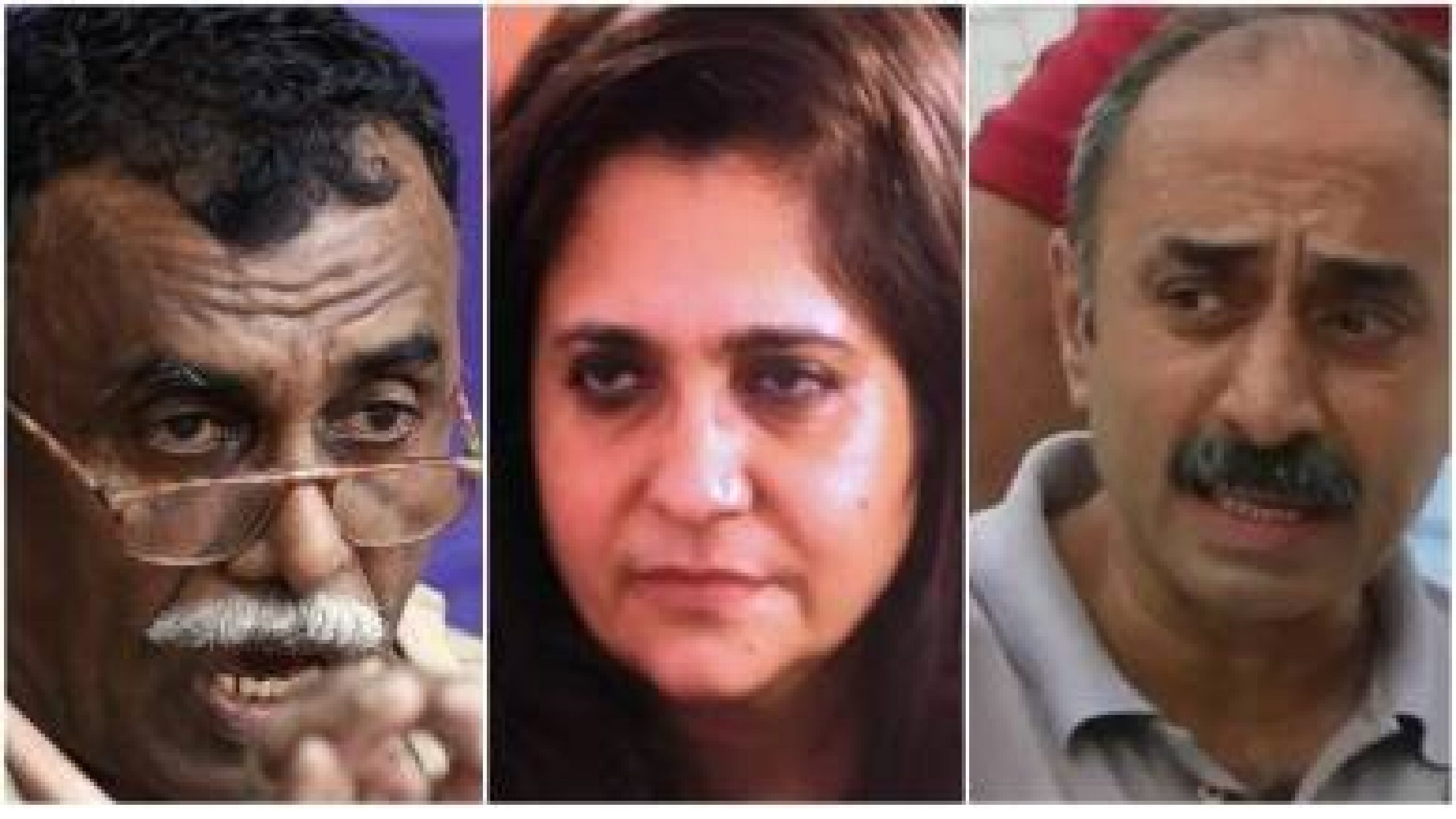Sreekumar, Setalvad and Sanjiv Bhatt
- Arrested soon after Amit Shah’s reaction to SC judgment
- Apex court’s adverse comments picked up by police
The unseemly haste with which an FIR was filed against activist Teesta Setalvad and former IPS officer and ex DGP of Gujarat R.B. Sreekumar accusing them of criminal conspiracy and other offenses under the IPC is disturbing, to say the least. The Supreme Court which has been instrumental in getting the post-Godhra 2002 cases of riots investigated in depth by taking extraordinary steps appears to have unwittingly played into the waiting hands of the police with its avoidable comments against the petitioners. It seemed as though the learned judges got convinced in the process and found fault with the petitioners since they failed to prove their case.
Acting on those who sought justice for the riot victims might have a chilling effect on the defenders of human rights. This attitude will leave the victims of atrocities with no one to take up the cudgels on their behalf. The judiciary’s comments particularly sound unkind for Zakia Jafri the widow of the former MP Ehsan Jafri who was butchered in Gulberg Society messacre.
Arresting and jailing former IPS officer Sreekumar and rights activist Teesta Setalvad would put fear in those who are public spirited. In fact, it was because of the service minded activity of these very people that the Supreme Court has been making several proactive interventions including the appointment of Special Investigative Team to reinvestigate the riots cases. Had it not been for the apex court justice would have remained elusive for the victims of Gujarat riots.
Home Minister Amit Shah was the first to take advantage of the comments by judges against Sreekumar and Setalvad. Soon after he spoke to ANI news agency, the police swung into action. Gujarat police from terror cell went to Mumbai to take custody of Teesta Setalvad to throw her in jail. Sreekumar,75, a retired and distinguished police officer, was taken into custody from his home in Ahmedabad. On Friday, as is known, the SC upheld the SIT’s clean chit in the 2002 riots to the then Gujarat government led by Chief Minister Narendra Modi, discarding the allegations of a larger conspiracy of high state functionaries. The case collapsed for obvious reasons. It is well nigh impossible for private citizens to convince any court of law with the theory of conspiracy without presenting any tangible evidence. The allegations are more of an emotional nature by those who were moved by the devastating developments in the wake of Godhra train torture in which 56 persons were charred to death. Upholding the SIT’s clean chit and dismissing the case is within the right of the judiciary and nobody has any qualms about that. The problem is with the comment that the apex court had made saying, “At the end of the day, it appears to us that a coalesced effort of disgruntled officials of the State of Gujarat along with others was to create sensation…to keep the pot boiling, obviously for ulterior design…all those involved in such abuse of process, need to be in the dock and proceeded with in accordance with law.” Who kept the pot boiling? Was it not the Supreme Court which entertained the petitioners all these years, of course for good reason? There is evidence to believe that Sreekumar at the time of riots and after was an upright officer liked by Narendra Modi. His troubles started only after he reported the development in what he thought a factual manner.
Police made use of the court’s comments to take action against Setalvad and Sreekumar. The same court will have to intervene to stop witch hunting by the police. Though law must take its course in the case of the activist and the police officers (Former IPS Officer Sanjiv Bhatt has already been languishing in jail), the police should not be allowed to get away with vengeance. Only then the victims and survivors could hope for a fair and just closure of the two decade old nightmare. Setalvad and Sreekumar must be complimented for their courage in questioning the most powerful in the country. The allegations of forgery and other illegalities could be probed by investigative agencies and heard by the court. But the very fact that they dared to take cudgels on behalf of the victims of the riots that took a toll of more than a thousand people should not be glossed over. The treatment meted out to them by the police, and the power that be, would finally influence the future rights activists.




